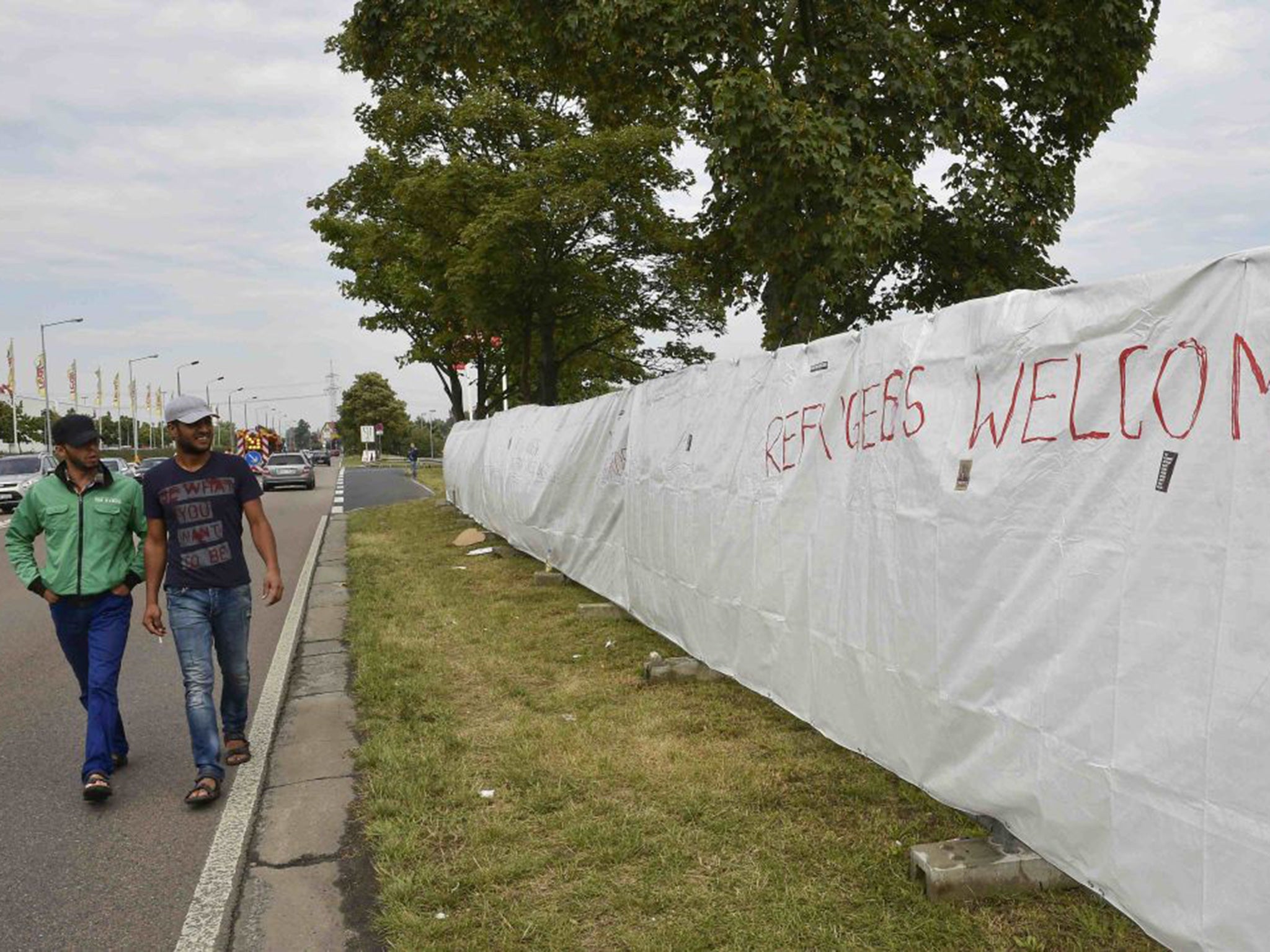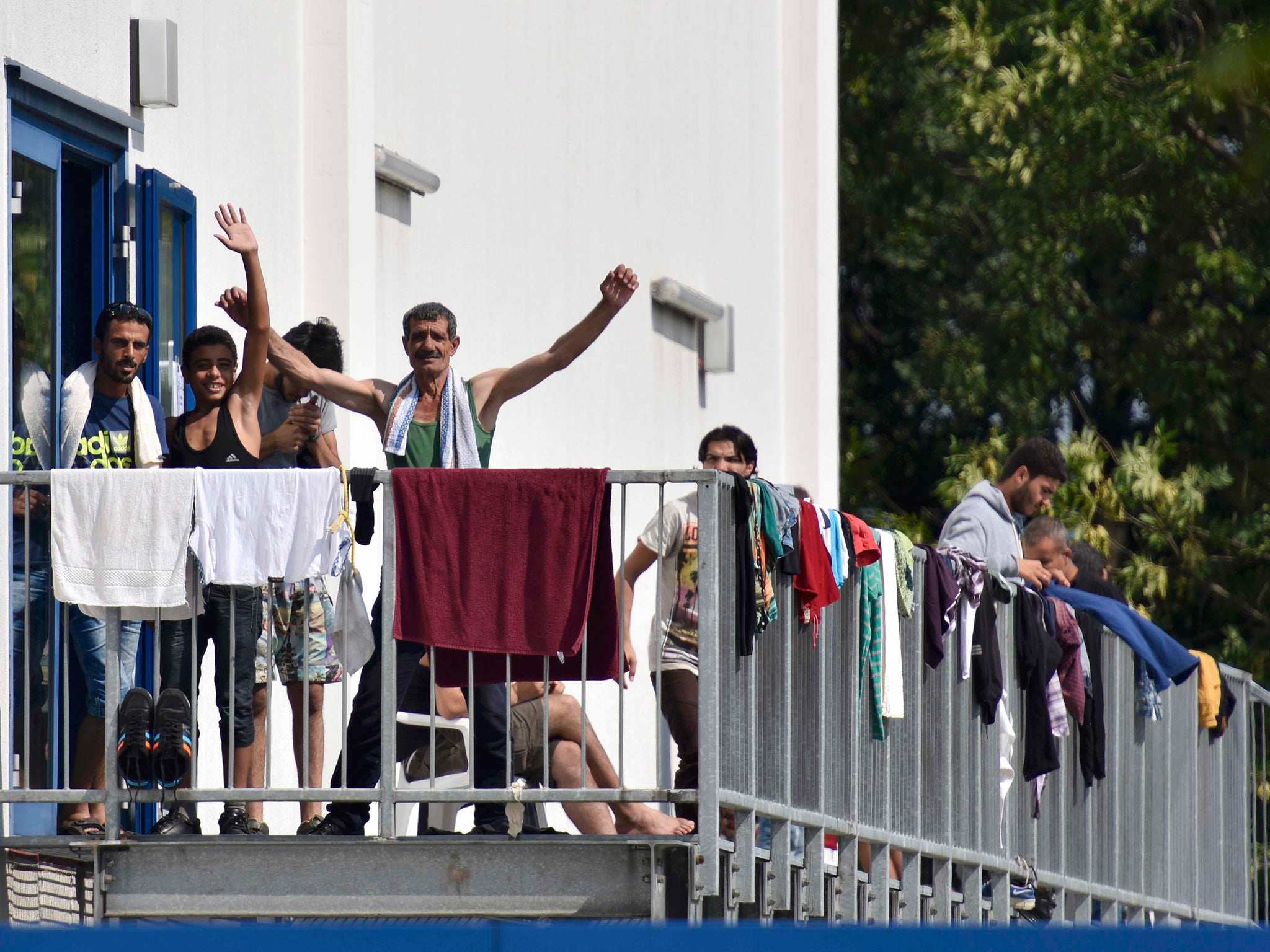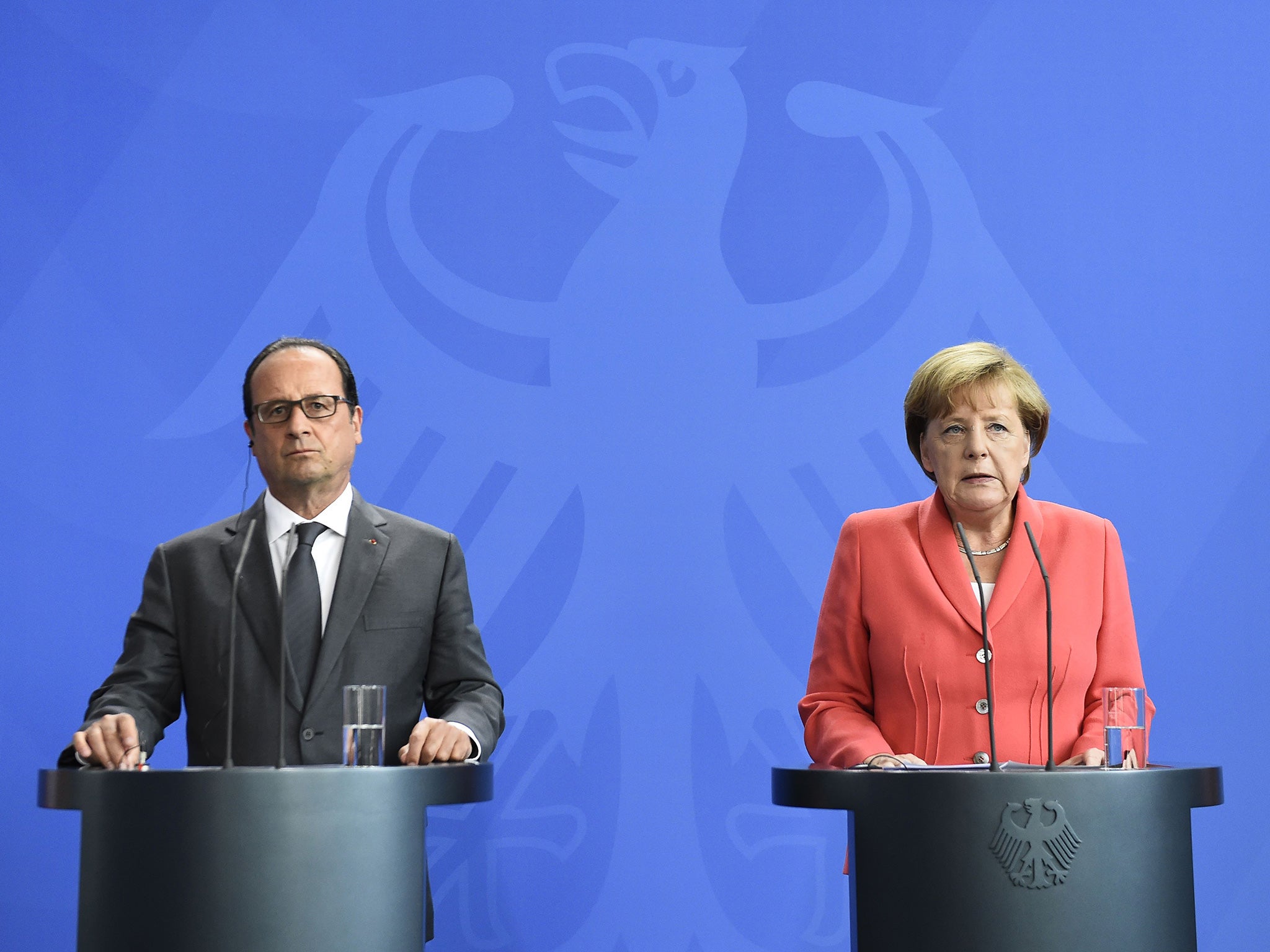Germany opens its gates: Berlin says all Syrian asylum-seekers are welcome to remain, as Britain is urged to make a 'similar statement'
Berlin suspends 1990 protocol – a decision that will increase pressure on Britain and other EU countries to follow suit

Your support helps us to tell the story
From reproductive rights to climate change to Big Tech, The Independent is on the ground when the story is developing. Whether it's investigating the financials of Elon Musk's pro-Trump PAC or producing our latest documentary, 'The A Word', which shines a light on the American women fighting for reproductive rights, we know how important it is to parse out the facts from the messaging.
At such a critical moment in US history, we need reporters on the ground. Your donation allows us to keep sending journalists to speak to both sides of the story.
The Independent is trusted by Americans across the entire political spectrum. And unlike many other quality news outlets, we choose not to lock Americans out of our reporting and analysis with paywalls. We believe quality journalism should be available to everyone, paid for by those who can afford it.
Your support makes all the difference.Berlin took the lead in efforts to resolve the European refugee crisis on Monday by declaring all Syrian asylum-seekers welcome to remain in Germany – no matter which EU country they had first entered.
Germany, which expects to take a staggering 800,000 migrants this year, became the first EU country to suspend a 1990 protocol which forces refugees to seek asylum in the first European country in which they set foot.
The German Federal Office for Migration and Refugees ratified an order suspending the so-called Dublin Protocol. “Germany will become the member state responsible for processing their claims,” a government statement said.
All current expulsion orders for Syrian asylum-seekers will be revoked, the government said. New Syrian arrivals will no longer be forced to fill in questionnaires to determine which country they had first arrived in. In the first six months of 2015, Germany registered 44,417 applications from Syrian asylum-seekers.
The decision piles further pressure on other EU countries – including Britain – which have used the 1990 protocol as the legal basis for refusing to take any share of the refugees from the Middle East and Africa now pouring into Europe to escape war, oppression or famine.

The decision came as Chancellor Angela Merkel and the French President, François Hollande, held talks in Berlin to try to come up with solutions to the worst European refugee crisis since the immediate aftermath of the Second World War.
They appealed on Monday night for the creation of a new, Europe-wide asylum policy, in which all 28 EU countries would be expected to take part. Ms Merkel spoke of an “exceptional situation” which “is not going to end soon.”
Germany’s policy change was also a direct snub to a series of far-right demonstrations against refugees in eastern Germany at the weekend. Ms Merkel said that demonstrations in the town of Heidenau, were “vile”.
Her spokesman said: “Germany is a compassionate country and will not allow refugees to be met here by hateful slogans or alcohol-fuelled loudmouths.”
He said all asylum-seekers deserved to be treated with “dignity and respect”. Tensions remain high, however. The far-right is planning another demonstration this weekend in the Harz Mountain town of Goslar. The mayor of the town, Oliver Junk, has said that he welcomed refugees with “open arms” because of the diminishing local birthrate and an exodus of young people.
The German decision to declare open house for Syrian refugees was welcomed by refugee support groups in Britain as a lesson that the Government should follow.

The Refugee Council’s advocacy manager, Anna Musgrave, said: “This announcement from Germany is very significant… It’s high time the British Government made a similar statement.
“So far our Government has been trying its best to prevent refugees from reaching our shores; pulling up the drawbridge and forcing people to place their lives in smugglers’ hands. That’s simply not good enough.”
The Austrian Foreign Minister, Sebastian Kurz, said on Monday that the Dublin agreement “no longer works” after visiting Macedonia. The Balkans are “overrun and overwhelmed”, he said. “The Dublin system doesn’t only work terribly, it actually doesn’t work at all any more,” he said.
In a fiercely worded opinion article in German and French newspapers, the European Commission President, Jean-Claude Juncker, on Monday accused most EU governments of political cowardice.
“What we need, and what we are sadly still lacking, is the collective courage to follow through on our commitments even when they are not easy; even when they are not popular,” he wrote in Die Welt and Le Figaro. “Instead what I see is finger-pointing – a tired blame game which... is not actually solving any problems.”
The Merkel-Hollande talks in Berlin came as the Europe-wide migration crisis entered an intense new phase. At least 2,000 Middle Eastern and African migrants, including many women and children, entered Serbia en masse from Macedonia on Sunday night.
The EU border agency, Frontex said this week that a record 107,000 migrants arrived at European land and sea borders last month. More than 20,000 people arrived in Greece alone.
Many migrants in Greece sought to travel onwards to Macedonia last week en route for northern Europe. Skopje closed its border for three days. Police used stun grenades and batons to keep refugees at bay before standing aside to let everyone enter.
The Italian coastguard rescued 4,400 migrants from 22 boats in the Mediterranean on Saturday – the highest daily figure in years. A detailed European Commission resettlement plan is expected next month. So far Britain has refused to take any of the asylum-seekers reaching southern and eastern Europe.
One subject under discussion was a possible distinction between refugees from areas hit by war and famine and “economic” migrants. EU governments would be allowed to refuse all migrants from, for example, Albania, Serbia and Kosovo but would be expected to deal sympathetically with Syrians, Iraqis and refugees from the Horn of Africa.
Subscribe to Independent Premium to bookmark this article
Want to bookmark your favourite articles and stories to read or reference later? Start your Independent Premium subscription today.
Join our commenting forum
Join thought-provoking conversations, follow other Independent readers and see their replies
Comments